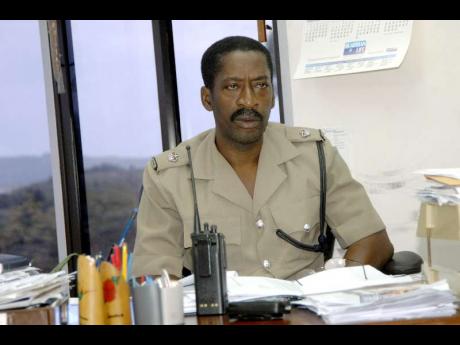Constitutional, governance issues
Martin Henry, Contributor
Some of the most important elements of our culture and heritage tend to get overlooked or under-treated at this heritage time of the year and all through the rest of the year. Far more important than music, food and folklore wrapped in bandana is our legal and political heritage and the religious grounding which generated this heritage of Western democracy and individual freedom.
We now casually take a lot for granted, which is not common to human history or human societies. Things like the rule of law, equality before the law, the presumption of innocence until proven guilty, trial by a jury of peers, constitutional government with separation and balance of powers, inalienable human rights anchored in constitutional law, free and fair competition for state power, the universal right to vote ... These things are, to an extraordinary degree, the creation of Anglo-European, Christian-based civilisation.
We are more what we are as a people on the basis of these things than ackee and saltfish, mento and reggae, kumina and anancy stories. The main business of government in the tradition of Western democracy is to protect these things and to make them work well in the interest of all the people.
Westminster-based constitution
Jamaica entered Independence with a fine Westminster-based constitution, the basic pattern of which is widely replicated across the English Commonwealth, but with quite varying results on the ground in the quality of governance and the development of states and their peoples. It is fashionable among the 'educated' reformers to blame the ills of our political system on failure of the Constitution and to prescribe constitutional reform as the cure. But a cursory look at political systems around the world quickly exposes the shallowness of the diagnosis and the prescribed cure. Virtually all Latin American countries, for example, out of sheer admiration of their results, have adopted the constitutional arrangements of the United States, with generally quite different outcomes.
The less educated among us, long known for their practical wisdom, if and when they think about the Constitution at all, don't seem to share the views of the educated reformers. The popular adulation and adoration which Queen Elizabeth II enjoys as the expatriate head of the Jamaican state is deeply distressing to the reformers, who regard this constitutional arrangement as an affront to our dignity and 'sovereignty' as an independent state, and in some way which ordinary people can't understand is a fundamental cause of our ills, though not in Canada, Australia, or, for that matter, Barbados. Nor has her removal as head of state done much to help Zimbabwe or Guyana.
In the sheerest irony, engineered editorially or purely by accident, the report carried by this newspaper last Wednesday, 'Two-term bill sent to House', had immediately beside it a photograph of the Jamaican high commissioner to London, Anthony Johnson and Mrs Johnson meeting with the octogenarian monarch who is head of both the British and Jamaican states.
The prime minister is presiding over a country with one of the highest murder rates in the world, where dropping from over 130 to about 70 per month is a cause of celebration. Mr Golding is heading one of the consistently worst-performing economies in the world, a situation running over decades. And, as the media like to put it, he is "embattled" over the Coke extradition issue and the follow-up "distracting" Manatt, Phelps, Phillips matter over which he has been "forced" to announce a commission of enquiry. But he can think of nothing better to do than proposing term limits upon the office of prime minister.
Term-limit bill
Opposition Senator A.J. Nicholson has sized up the term limit bill as a hard sell, noting that term limits were rare in the Commonwealth where the Westminster model of government is practised. "It would," he said, "be the duty of the Government to convince the public as to the necessity of this step being taken, and what is the malady that it is intended to cure." Hard sell indeed!
The prime minister is implying with the two-term bill that the corruption of the office which he now occupies is a significant cause of the political, economic and social problems of the country. He should know.
But term limits would hardly be the cure. Mexico, for example, has had an even more stringent term limit on its presidency: One six-year term for any holder of the office. But for 70 years, one political party, the Institutional Revolutionary Party [PRI from the Spanish name] held the presidency and totally dominated Mexican politics at all levels with levels of corruption that Jamaica can only dream about. Russia has term limits on its presidency, but Vladimir Putin has cleverly arranged to switch places with his former prime minister, Dmitry Medvedev, and continues to run the country while out of the presidency.
It is time for Jamaicans to understand that our biggest political problem, which feeds into our economic and social problems with crime heading the line-up, is the political parties which have pimped the resources of the state while in power to produce political clientelism and garrisons to go with this dependency, and have obstructed development potential through the tribal conflicts extending from Gordon House to inner-city streets and running through all levels of society.
We have managed substantially to corrupt the Westmin-ster model, one of whose sacrosanct principle is the independence and neutrality of the civil service vis-à-vis the executive.
Wasting time
A prime minister now wasting time on term limits has been the principal champion of the Constituency Development Fund (CDF) which places money from the public revenue into the hands of members of parliament (MPs) for discretionary expenditure. With all the safeguards in the world, the CDF can and will be deployed to "buy votes", that is, expended in such a fashion as to help to secure re-election. Furthermore, the civil service agencies mandated to handle public administration must be undermined in their functions by the interference of MPs in the delivery of public services.
To add insult to injury, in this democracy, the parliamentary committee reviewing expenditure on CDF projects has been, until last week, closed to the public, when most other committees hold public sittings. Its opening now is, hopefully, the beginning of the road to the end of the Constituency Development Fund.
Ironically, the very poverty engendered by poor governance and destructive political contest, and which restricts public revenue, has forced down the intended allocations to the CDF.
A prime minister whose government is doing such a poor job securing the citizens of the country, protecting their rights from abuse by the state itself, and delivering justice, thinks the solution lies in term limits on the office of prime minister.
The corruption of politics created the garrisons and the challenge of the 'mother of all garrisons' to the state in response to the requested extradition of its don forced the incursion by the security forces into Tivoli Gardens.
Something which should not happen in any civilised state under the rule of law has happened here, stemming from that operation. At least three male persons, one a child of 16, allegedly taken into custody by the security forces have yet to be accounted for. Disappearances must not be tolerated in a civilised state.
Christopher Coke has been extradited to the United States over the legal objections of the Government of the sovereign Jamaican state. When I asked the prime minister at Jamaica House during one of his many consultations with civil society on the matter, why Coke was sent without the legal objections raised by the Government being resolved, he answered simply, "We bowed".
Commission of enquiry
The prime minister has now established a commission of enquiry with terms of reference to be formulated. And what glorious freedom that a citizen can sue a prime minister, as Harold Brady has done over the Manatt, Phelps & Phillips affair! Surely, one vital matter to be enquired into by this commission of enquiry is whether the rights of a Jamaican citizen, even if he is regarded as the devil's elder brother, including the right to the protection of his state, were simply swept aside to release domestic political pressure and bilateral diplomatic pressure.
One last matter I would like to raise quickly, as we consider our heritage of law and government, has to do with the action of the police against windscreen wipers. Many people are glad that the nuisances are being removed; others want sympathetic social intervention to help them.
Wiping windscreens is not a crime. I want to know if the Government of Jamaica in its various branches, including the judiciary, is leaving the police force to create class crimes and criminals and to criminalise what is simply unpopular - or redundant, as traffic chief SSP Radcliffe Lewis has offered as a justification for his action.
Totalitarian states are good at this. But Western jurisprudence, which is our proud heritage, is built on individual culpability for specific breaches of the law, a public law enacted by the legislature and equally applicable to all, and it does not seek to penalise people for pursuing lawful activities which others, however numerous or powerful, don't like.
Martin Henry is a communications consultant. Feedback may be sent to medhen@gmail.com or columns@gleanerjm.com.



